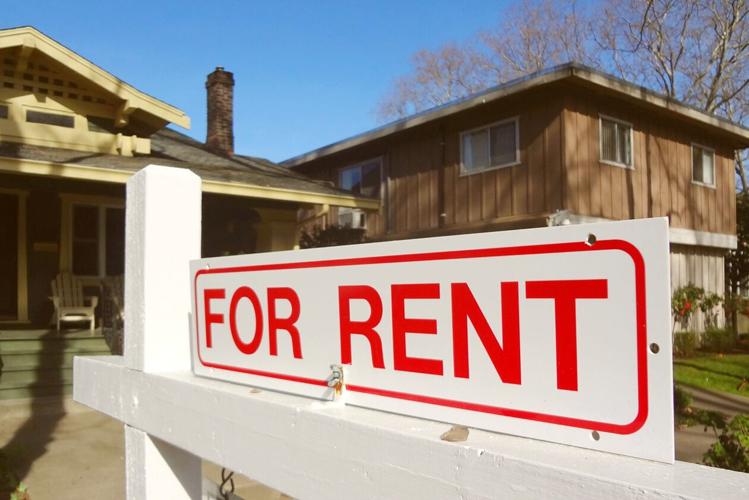Affluent Americans are increasingly choosing to rent instead of buy a home. And that’s good news for apartment developers. Millionaire renters are growing in numbers across the country. In some cities, such as San Francisco, the number of high-income households renting jumped 166% between 2015 and 2020. The trend is driven by a few key factors.
1. Affluent Americans are opting not to buy a home
Many people believe that homeownership is a key stepping stone to wealth, but more and more millionaires are choosing to rent. And that’s good news for the rental market. The number of households making more than $150,000 a year who rent instead of own increased across the country, according to research from the real estate brokerage Redfin. The rise in affluent renters has been especially notable in cities where home prices and mortgage rates have gone up sharply. For example, San Francisco saw an 86% increase in the number of high-income renter households between 2015 and 2020—to 36% of all rentals in the city. That’s because the salaries of well-heeled San Francisco residents have grown faster than the city’s median income, which makes breaking into the for-sale market difficult.

In fact, the housing crisis has made it harder than ever to build wealth—even for those at the very top of the wealth ladder. Since the start of this year, America’s richest 0.1% have gained $1.3 trillion in net worth while the bottom 50% has seen a mere $330 billion, per the Federal Reserve’s most recent data.
With rising home prices, soaring mortgage rates, and meager wage gains, it’s no wonder that even the affluent are choosing to rent rather than buy. And if this trend continues, it could be a boon for apartment operators, who are trying to lure tenants with perks like free meals and laundry services.
2. A wave of apartment construction has flooded metros with new studios and two-bedroom apartments
The plethora of apartment complexes churning out studios and two-bedrooms in metros across the country is good news for renters, but it could also be a sign that the market is starting to overheat. Regardless, cheap borrowing costs will likely fuel continued apartment construction as long as developers can sell to investors, according to analysts. The new apartments being built across metros offer a range of amenities. There’s a new building in downtown Des Moines, Iowa, with swimming pools and stainless steel appliances; another offers “micro” studios, and yet another specializes in pet-friendly living. A few of the newest buildings feature rooftop decks where residents can enjoy the view and grill up food.
High-income renters are flocking to the city, too. In the past five years, the number of households earning more than $150,000 annually that rent tripled in Seattle, a hot spot for affluent renters thanks to its tech-heavy economy. The same trend is playing out in other booming cities, such as San Francisco and Washington, D.C.
Affluent renters, who are generally more flexible when it comes to moving around, have helped slow the pace of house sales by opting for renting. It’s a way for them to build a solid financial platform before making the biggest investment of their lives, Dunlap said. It’s a chance for them to “figure out what their priorities are and make a decision that fits them.” They can be confident that they’re ready to buy a home when the time is right.
3. A tight-knit circle of attorneys and judges has fueled a bankruptcy court’s meteoric rise
In recent years, the Southern District of Texas has grown into a magnet for bankruptcies. A new book by Business Insider sheds light on how a tight-knit circle of attorneys and judges fueled the court’s meteoric rise, even as it faced rampant conflicts of interest.
One of the key factors was a growing number of wealthy renters, who prefer to build a solid financial platform before making what could be the biggest investment of their lives. They’re also avoiding the expense and maintenance burden of owning a home. Instead, they can sock away some of their income and put it toward a higher-returning investment, such as the stock market.
That trend has been accelerated in cities such as Seattle, where high-income renter households have tripled since 2015, according to RentCafe. The city’s boom is being fueled by tech titans like Amazon and Microsoft, as well as a booming biotech sector.
To boost the court’s profile, Jones and Isgur made Houston “a haven for bankruptcy lawyers.” They changed the rules so that complex Chapter 11 cases were assigned to only two judges—Jones and Isgur. They also blurred the lines between their professional and personal lives, spending time together outside of court and becoming friends with a small group of attorneys who often appeared before them. This created a conflict of interest, as the judges’ decisions would affect their paychecks and the fortunes of their law firms.
4. Renters finally have some leverage
Affluent renters have a lot of leverage now that home prices and mortgage rates are rising. It is also easier than ever to invest in rental properties with the help of a HELOC or home equity loan.
When a tenant is negotiating with landlords for renewal or new lease terms, they should approach the negotiations with empathy and knowledge of the overall real estate market, personal finance expert Ramit Sethi says. They should know what comparable apartments in their neighborhood are renting for and be prepared to defend the price they are offering. A savvy tenant can also offer to take on some of the landlord’s fixed costs, such as property taxes or insurance, or to cover part of utilities in exchange for a lower rent.

Landlords have a lot of financial incentives to work with tenants when they are in the bargaining process, Allia Mohamed, CEO of Openigloo, a company that gathers public information on apartment buildings and landlords in New York City, tells CNBC Make It. Vacancy rates are high in many cities, and landlords don’t want to risk having their apartments sit empty while they hunt for new tenants or make repairs.
Thypin recently told Bloomberg that being a major landlord doesn’t deliver as much bang for the buck as it used to because of eye-watering maintenance and insurance costs and because politicians are more attuned to renters than ever before, with a growing class of agitators fighting for things like “just cause” evictions and rent stabilization laws. But tenant rights leaders say that while Thypin is right that more people are mobilizing to support tenants’ issues, the balance of power still weighs heavily in favor of major landlords.





